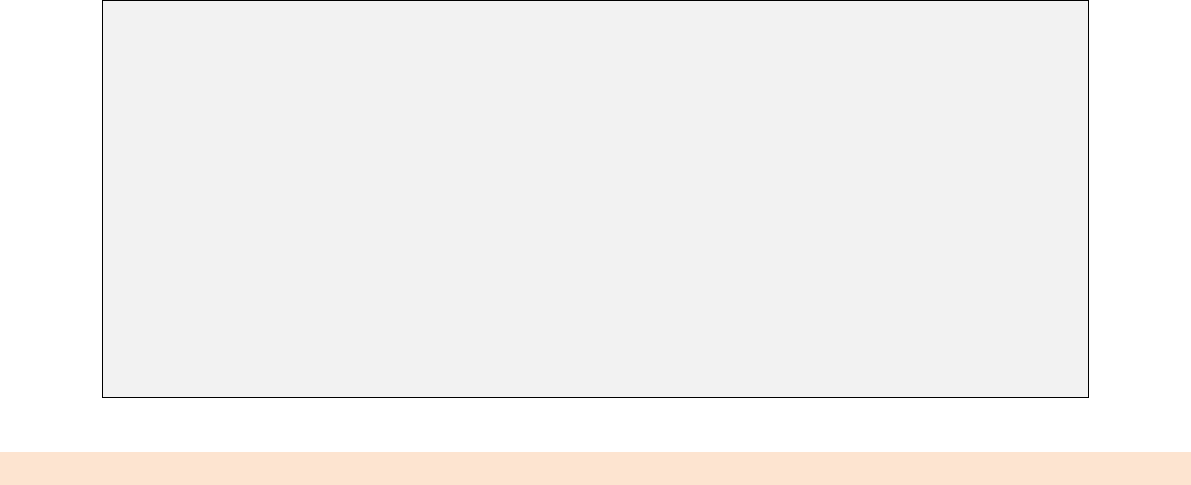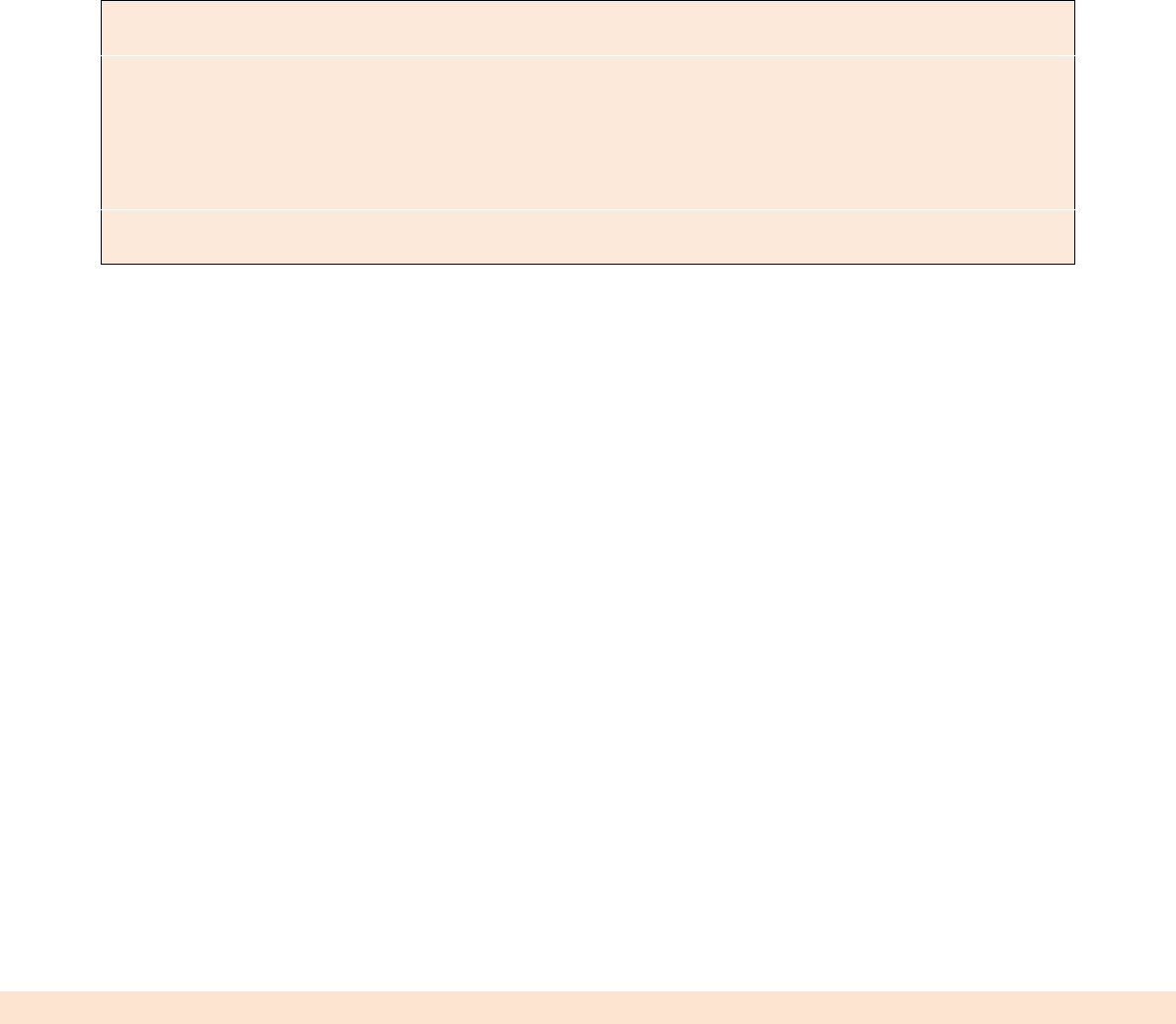
DEPARTMENT OF
HEALTH
For more information email PublicConsultNCOC.[email protected].au
National Code of Conduct for health care
Workers who are not registered in the National
Registration and Accreditation Scheme
Information paper
Implementing the National Code of Conduct in the
Northern Territory

National Code of Conduct for health care workers
Page 2 of 19
Introduction
Purpose of this information paper
The purpose of this information paper is to provide an overview of the National Code of Conduct
for health care workers (the Code) not regulated by the National Registration and Accreditation
Scheme (NRAS), and provide a basis for consultation on how the Code could work in the Northern
Territory (NT).
The information gathered during this consultation will be considered by the NT Government in
making its decisions on the Code. It is important to state that a final decision has not been made by
the Government on whether to implement the Code and how the regulation around it might work if
it was to be introduced in the NT.
The text of the Code is at Appendix 1 to this information paper.
How to provide your comments
Written feedback
This information paper includes a series of questions on key policy issues for your feedback. A
response template with the questions included has been emailed to invitees and will be available
from www.health.nt.gov.au.
Please provide your comments to PublicConsultN[email protected] by 20 January 2018.
Information forums
The Department of Health and the Health and Community Services Complaints Commission are
conducting information forums in the first two weeks of December. Your feedback can be provided
at the forums. Dates, times and venue details for the forums are as follows:
Darwin:
10.00am – 12.00pm
7 December 2017
Royal Darwin Hospital Auditorium
Alice Springs:
10.00am – 12.00pm
11 December 2017
R.E.D Centre Building
Auditorium
Alice Springs Hospital
Katherine:
11.00am – 1.00pm
5 December 2017
Katherine Hospital Training Room
Videoconference:
10.00am – 12.00pm
13 December 2017
Contact: PublicConsultNCOC.DoH@nt.gov.au
or call 08 8922 7247 for details.
Please register your attendance at one of the forums via email at PublicC[email protected]
or call 08 8922 7247.

National Code of Conduct for health care workers
Page 3 of 19
Background to the Code
In 2011 the COAG Health Council approved a project to consider introducing a national code of
conduct for unregistered health care workers, e.g. allied health practitioners such as audiologists
and speech pathologists, alternative and complementary medicine therapists, massage therapists
and social workers, among others. A national consultation was run which found there was
widespread support for the idea. The next part of the project looked at what terms might go into a
code. Another national consultation was run and in April 2015 the COAG Health Council approved
the terms of the Code and issued its Final Report.
In making its decision COAG recommended that states and territories look at introducing the Code
in their jurisdiction. Recognising that states and territories have different environments and needs,
COAG left some issues about how the Code could operate to be decided at the local level. This
information paper looks at some of those issues and seeks feedback from health care workers,
providers and other interested parties.
New South Wales, Queensland, South Australia and Victoria have implemented the Code in their
states and other jurisdictions are in various stages of implementation.
Overview of the Code
Purpose of the Code
The purpose of the Code is to set reasonable standards of behaviour for health care workers who
are not regulated under the National Registration and Accreditation Scheme (NRAS). NRAS is the
national regulatory scheme which is administered by the Australian Health Practitioner Regulatory
Agency (AHPRA). There are currently 14 health professions registered under NRAS. Examples
include medical, nursing, physiotherapy, podiatry, pharmacy and Aboriginal and Torres Strait
Islander health practice.
NRAS professions are not subject to the Code, unless a registered health practitioner practices
outside their professional field.
How the Code would work in practice
If implemented in the NT, the Code would be established under a Regulation of the Health and
Community Services Complaints Act (the HCSC Act). The regulatory framework governing how the
Code operates would be contained within the HCSC Act.
The Code is a form of negative licensing and would set standards of behaviour the community
might expect of a safe and ethical health care worker.
In broad terms the Code would set standards in the following areas:
Safety and ethics
Claims to cure certain serious illnesses
Misinforming clients
Practising under the influence of alcohol or unlawful substances
Practising while ill, injured or disabled where that may place clients at risk of harm
Financial exploitation of clients
Sexual misconduct by health care workers
Privacy and client records
Requirement to maintain insurance cover.
In most cases health care workers would not need to change their practice to meet the
requirements of the Code and would notice little difference in their day to day work.

National Code of Conduct for health care workers
Page 4 of 19
The Code regulatory framework would, however, provide the means for the Health and Community
Services Complaints Commissioner (the Commissioner) to take action to protect public health or
safety if necessary.
On some occasions where a complaint is received and there is evidence of an immediate risk to the
health or safety of the public, the Commissioner may issue an interim prohibition order for a
specified period of time, while an investigation and other action is underway.
Following an investigation and where a breach of the Code is established, the Commissioner may
issue a prohibition order restricting or preventing the health care worker from practicing in a
manner which poses a risk to the health or safety of members of the public. In the most serious of
cases the prohibition order may prevent the health care worker from practising altogether and/or
permanently.
Prescribed offences
A prohibition order may also be issued where a health care worker has committed a prescribed
offence. Prescribed offences would include offences under the Criminal Code, Public Environmental
Health Act and Australian Consumer Law. Prescribed offences would capture a health care worker’s
conduct outside of their practice, which the Commissioner considers contrary to the National Code
and appropriate standards of behaviour. Examples might be convictions for fraud or sexual
offences.
Right of review
Health care workers who are subject to an interim prohibition order or a prohibition order may seek
a review of the Commissioner’s decision to issue an order by the NT Civil and Administrative
Tribunal (NTCAT). The NTCAT’s decision may be subject of a judicial review on points of law by the
NT Supreme Court.
National recognition of prohibition orders
States and territories have agreed on a system whereby prohibition orders will be recognised
nationally. Prohibition orders will go on a national register and be published on a website operated
by all the state and territory health complaints bodies. This will assist in preventing health care
workers moving between jurisdictions and continuing prohibited practice. A project is underway to
develop the national website.
Public statements
Following the issuing of an interim prohibition order or prohibition order, the Commissioner would
be able to issue a public statement giving information or warnings about a health service, health
care worker or provider.
Offences and penalties
It would be an offence to breach an interim prohibition order or a prohibition order. An alleged
breach of an order would be prosecuted in the Local Court and a penalty imposed if the breach was
established.

National Code of Conduct for health care workers
Page 5 of 19
Policy issues for consultation
Introduction to this section
As previously mentioned, in agreeing to the terms of the Code, the COAG Health Council left some
policy issues around how the Code would work to be determined by the states and territories
according to their needs. This section explores those policy issues and seeks your feedback on the
best approach for the NT. Some questions are posed to assist you in providing your feedback.
Definition of a ‘health service’ for the NT
Current NT definitions
A key question to be resolved is the definition of a health service for the purposes of the Code.
Currently the HCSC Act distinguishes between a ‘health service’ and a ‘community service’. A
health service is defined as a service provided or to be provided in the Territory for, or purportedly for,
the benefit of the health of a person.
The Regulations to the HCSC Act set out in further detail the services which fall within the
definition of a ‘health service’. This is reproduced at Appendix 2 of this information paper. In
general terms the services covered by the definition include medical, nursing, dental,
pharmaceutical, allied health services, social work, and alternative therapy services, among others.
Associated ancillary services such as laundry and catering services provided within a health service
are also covered.
A community service under the HCSC Act is defined as a service for aged people or a service for
people with a disability.
Issues to take into account when considering definitions
The definitions in the HCSC Act have remained unchanged since the Act’s inception in 1998. Since
that time the NRAS has been introduced moving registered health practitioners into the national
jurisdiction. Complaints regarding aged care services funded by the Commonwealth Government
are dealt with by the Aged Care Complaints Commissioner.
More recently the National Disability Insurance Scheme (NDIS) has been initiated. One outcome of
the NDIS is that all providers and workers funded by the NDIS will be required to comply with the
NDIS Code of Conduct which will be overseen by the NDIS Quality and Safeguards Commission.
Interstate definitions of a health service
States with the Code in place have chosen different definitions of a health service according to their
local needs.
Some caution needs to be exercised when comparing interstate arrangements as there may be
other agencies with some regulatory role in a sector. For example, the NSW Ombudsman has
powers to investigate complaints into disability services.
Also of note, NSW and QLD are co-regulatory jurisdictions whereby notifications or complaints in
relation to health practitioners registered under the Health Practitioner Regulation National Law
(the National Law), are managed by the state based regulatory agencies, in cooperation with
AHPRA.

National Code of Conduct for health care workers
Page 6 of 19
New South Wales
This definition of a health service covers medical, nursing, midwifery, dental, mental health,
ambulance, community health, alternative health services, and those other services which accord
with a general understanding of a health service. Aged care and disability services are excluded
from the scope of the NSW definition.
Queensland
QLD defines a health service as a service that is, or purports to be, a service for maintaining,
improving, restoring or managing people’s health and wellbeing. A health service may be provided
to a person at any place including a hospital, residential care facility, community health facility and
home.
South Australia
SA defines a health service as a service designed to benefit or promote human health; or a service
provided in association with the use of premises for the care, treatment or accommodation of
people who are aged, or have a physical disability or mental dysfunction. Aged care and disability
services are included in the scope of the SA definition.
The definition considered by COAG and adopted by Victoria
In its Final Report: A National Code of Conduct for health care workers, the COAG Health Council
offered a definition of a health service which is a variation of one originally developed by the
Australian Law Reform Commission. This was ultimately adopted by Victoria when it developed its
new Health Complaints Act 2016. This definition, among other things, captures services designed to
assess, predict, maintain, improve, diagnose, prevent or treat a person’s illness, injury or disability.
However, the Victorian Act also contains a provision which requires the referral of disability related
complaints to the Victorian Disability Services Commissioner. Health service providers providing a
service in an aged care facility would be subject to the Health Complaints Act 2016, but complaints
regarding the facility or funding matters would be excluded.
Should the NT definition change?
In looking at how the Code may be implemented in the NT it is appropriate to consider whether the
current definition of a health service is fit for purpose. The key question to consider is whether the
current NT definition of a health service covers all the services it should cover when it comes to the
operation of the Code. In particular, should aged care services, and disability services not funded by
the NDIS, be covered by the Code in the NT?
Questions to consider
Does the current definition of a ‘health service’ in the HCSC Act need to change to accommodate
the Code or should it stay as is?
If you believe the definition of a health service needs to change, do you favour a broad definition
which captures aged care services and disability services not funded by the NDIS, or would you
prefer a narrower definition which excludes these latter services?
Why should the definition change / not change?

National Code of Conduct for health care workers
Page 7 of 19
Who should be covered by the National Code in the NT?
Current NT definition
In addition to defining a health service for the purposes of the Code, another issue to consider is
who is to be covered by the Code. The HCSC Act defines a ‘provider’ as follows:
…means a person who, or a body that, provides, or holds out as being able to provide, a health
service or community service and includes:
(a) an employer of a provider; and
(b) a volunteer who provides a health service or community service on behalf of a provider.
Under this definition an individual person or a ‘body’, which might be considered a number of
individuals who can be regarded as a single entity or group, are covered by the HCSC Act.
Employers and volunteers are also covered by the Act.
Issues to take into account when considering definitions
In its Final Report on the Code AHMAC recommended that a health care worker be defined as
meaning a natural person who provides a health service (whether or not the person is registered under
the Health Practitioner Regulation National Law). However, COAG Health Council did not mandate
that states and territories adopt a common definition across jurisdictions.
Commonly, codes of conduct apply to individual persons, although they may also apply to broader
entities such as organisations or associations. The language of the Code as adopted by COAG is
expressed in terms most relevant to an individual ‘health care worker’, rather than a collective or
broader grouping. However, this does not prevent the NT from specifying that the Code applies to
other entities such as employers or health service organisations.
Codes of conduct established by National Boards under the NRAS apply to individual registered
health practitioners. A registered health practitioner must observe their relevant professional code
of conduct and an employer or training provider must not direct or incite an individual practitioner
to engage in conduct that may constitute unprofessional conduct or professional misconduct. If an
employer was to direct or incite a registered health practitioner who is the subject of a condition
imposed by a relevant tribunal, to breach that condition, this would constitute an offence under the
National Law and a penalty may be imposed on the employer.
During the national consultation on the Code, concerns were raised that in the absence of direct or
incite offences and penalties, the circumstances may arise where a health care worker is directed by
their employer to do something that would constitute a breach of the Code. In such circumstances,
a health care worker who is simply following directions may be held solely responsible when their
employer should share responsibility. In its Final Report AHMAC did not make a recommendation
in relation to direct or incite offences and penalties.
As is the case with registered health practitioners, an interim prohibition order or a prohibition
order applying to an individual health care worker for a breach of the Code, must be similarly
observed by the health care worker’s employer. An employer could not direct a health care worker
to breach an interim prohibition order or prohibition order.
Interstate definitions of health care workers and/or providers
As with the definition of a health service, states and territories with code regulatory frameworks in
place have adopted different definitions of health care workers or providers. Some jurisdictions
confine the definition to an individual person, and others broaden the definition to include other
entities or bodies. NSW, QLD and Victoria have adopted narrow definitions while SA has a broader
definition which captures other entities.

National Code of Conduct for health care workers
Page 8 of 19
New South Wales
Under the Health Care Complaints Act NSW has defined a ‘health practitioner’ as meaning:
…a natural person who provides a health service (whether or not the person is registered under
the Health Practitioner Regulation National Law).
Only health practitioners not registered under the National Law, i.e., unregistered health
practitioners, are covered by the Code.
Queensland
Under the Health Ombudsman Act, QLD defines a ‘health practitioner’ as follows:
(a) an individual (a health practitioner) who is-
(i) a health practitioner under the National Law; or
(ii) another individual who provides a health service…
The provisions in the QLD Act dealing with health, conduct and performance are confined to health
practitioners other than registered health practitioners and do not extend to other entities or health
service organisations.
South Australia
SA has the broadest definition of the four jurisdictions defining a ‘health service provider’ as
meaning:
…a person, government agency or body of persons (whether corporate or unincorporated) who or
which-
(a) provides a health service; or
(b) holds himself, herself or itself out as being able to provide a health service.
Under this definition an employer or other body is subject to the terms of the Code and as such any
breach of the Code by the employer or body, and subsequent action in the form of a prohibition
order, would apply to that employer or other body.
Victoria
Victoria confines its definition to the individual, being a ‘general health service provider’ which
means a person who provides a general health service. In turn a ‘general health service’ means a health
service that is not a health profession service, i.e. is not registered health profession under the Health
Practitioner Regulation National Law.
Should the NT definition change?
Three out of the four states with code regulatory frameworks have confined their definition to a
person or individual. SA has adopted a broader approach. The issue to be resolved is whether for
the purpose of the Code, the definition of a health care worker or provider should be broad and
encompass other entities as well as an individual or person. Alternatively, should the NT create a
new definition of health care worker confined to a person for the purposes of regulating the Code?

National Code of Conduct for health care workers
Page 9 of 19
Questions to consider
For the purposes of the Code, should the definition of a health care worker (or provider) in the
HCSC Act include a person and other entities such as health service organisations and employers,
or should it be just confined to a person who provides a health service?
Why should the definition change / not change?
Duration of interim prohibition orders
Grounds for an interim prohibition order
One issue to be resolved in considering implementation of the Code is the appropriate duration of
interim prohibition orders. Interim prohibition orders could be issued by the Commissioner if the
following circumstances apply:
The Commissioner forms a reasonable belief that a breach of the Code has occurred; or
The health care worker has committed a prescribed offence, i.e. under either the Criminal
Code, Public Environmental Health Act or Australian Consumer Law; and
The order is necessary to protect the health or safety of the public.
An interim prohibition order could impose a restriction or condition on a health care worker’s
practice, or in more serious cases, prevent a health care worker from providing any service. Interim
prohibition orders would typically be issued where there is an immediate risk to the health or safety
of the public and remain in place during an investigation and subsequent action.
Duration of interstate interim prohibition orders
There is some variation between the states in this area as follows.
NSW: Eight weeks or such shorter period as specified in the order
QLD: An order remains in place until the relevant tribunal sets aside the order or the health
ombudsman revokes the order
SA: for a period of 12 weeks or a shorter period if specified in the order
VIC: Up to 12 weeks.
Issues to take into account when considering duration of interim prohibition
orders
There are a range of factors to take into account when considering what might be the optimal
duration of an interim prohibition order. One factor is that an order must run long enough so that
an investigation of the alleged breach of the Code can be undertaken. There will be a multitude of
factors which might determine the length of time an investigation will run. This could include the
availability of an investigator with the necessary skills in the particular area of health care. Also,
sufficient time needs to be given for a health care worker to provide information to the investigator.
Some cases might be especially complex and acquiring and sorting the information may be time
consuming. Procedural fairness also needs to be afforded to the health care worker throughout the
investigation.

National Code of Conduct for health care workers
Page 10 of 19
Some investigations may be of a shorter duration. For example, where a health care worker is
convicted of a prescribed offence it should be a relatively straightforward process to obtain the
necessary information in order for the Commissioner to decide the matter. However, others will be
more complex and time consuming.
Once an investigation has concluded, the findings of the investigator would need to be considered
by the Commissioner and the health care worker invited to make a submission on the findings. The
Commissioner would then consider that submission before determining if a breach of the Code has
occurred. If the Commissioner decides a breach of the Code has occurred the health care worker
would then be given an opportunity to make a submission before the Commissioner considers what
action, if any, they will take in relation to the breach. These matters of process would take several
weeks to conclude.
Given the impact of an interim prohibition order on a health care worker with respect to their ability
to earn a livelihood and the possible effects on reputation, and the need to protect public health or
safety, it is important that an order remain in place for the minimum time necessary to deal with a
matter.
Questions to consider
Should the HCSC Act specify a maximum period for an interim prohibition order like NSW, SA and
VIC, or do you prefer the QLD model where an order remains in place until set aside by the
NTCAT, or revoked by the Commissioner?
If the HCSC Act should specify the maximum duration of an interim prohibition order, what should
be the maximum duration of an order?
Should the HCSC Act allow the Commissioner to specify a shorter period of time in the order if
required?
Additional policy considerations
Power to investigate without a complaint being made (own
motion powers)
Commissioner’s current powers
Investigations by the Commissioner under the HCSC Act into a health service or community service
must arise from a complaint made to the Commissioner. The Act sets out who may make a
complaint as follows:
The user of the service, i.e. the consumer
A parent or guardian of a user
The donee of a power of attorney who has express or implied power to make a complaint
Another person who legally has care of the affairs of a user
A recognised representative of the user, or where the user is unable to choose a
representative, a person who has sufficient interest in the subject matter of the complaint
The Chief Executive Officer of the agency responsible for the Public and Environmental
Health Act, i.e. the Department of Health
The Minister, i.e. Minister for Health
A provider
Any other person where it is in the public interest for that person to make a complaint.

National Code of Conduct for health care workers
Page 11 of 19
There are many avenues for a complaint to be made to the Commissioner, however, the
Commissioner is unable to initiate an investigation where there is no complaint on hand. The power
to investigate without a complaint being made is often referred to an ‘own motion’ power, i.e. the
Commissioner takes action under his/her own motion, not as a result of a complaint or other event
occurring.
Interstate own motion powers
Other states provide for own motion powers under their health complaints legislation, with some
qualifications around when these powers may be exercised.
NSW
In NSW there are several pre-conditions to be satisfied in order for the Commissioner to initiate an
own motion investigation.
The Commission may… investigate the delivery of health services by a health service provider directly
affecting the clinical management or care of clients which may not be the particular object of a
complaint, but which arises out of a complaint or out of more than one complaint…
The matter must appear to the Commission that it raises a significant issue of public health or
safety, or raises a significant question as to the appropriate care or treatment of clients, or if
substantiated, would provide grounds for disciplinary action against a health practitioner.
QLD
The QLD Health Ombudsman Act grants fairly wide ranging powers to the ombudsman to conduct
an inquiry where there is a public interest. An inquiry can be into a matter relating to a complaint, a
systemic issue relating to the provision of a health service, or another matter the health
ombudsman considers is relevant to achieving an object of the Act.
SA
The Commissioner has broad ranging own motion powers. These powers allow the Commissioner
to inquire into and report on any matter relating to health or community services on the
Commissioner’s own motion or at the request of the Minister.
VIC
The Commissioner has broad ranging powers to conduct an investigation on their own initiative in
relation to any matter that a person would be able make a complaint about. The Commissioner is
required to consult with the President of the Health Complaints Advisory Council before initiating
an investigation.
Issues to take into account when considering own motion powers
There may be circumstances where a complaint to the Commissioner is not forthcoming and it
could be in the public interest for the Commissioner to initiate an investigation into a health service
under an own motion power. For example, some groups of different ethnic backgrounds may be
reluctant culturally to ‘complain’ about a service out of a fear of criticising the government or other
powerful institutions. Or a family member may fear retribution to a loved one from a service
provider, for making a complaint. Other reasons may be shame or embarrassment about a
procedure that ‘went wrong’, or lacking confident english literacy or language skills to make a
complaint. A complaint may also uncover another more serious issue with a service provider which

National Code of Conduct for health care workers
Page 12 of 19
is not specifically related to the complaint at hand. An own motion power is a means to deal with
these matters.
Arguments against own motion powers are usually related to a concern that authorities will misuse
these powers and initiate investigations into matters without justification or sufficient cause.
Typically this is addressed in legislation by specifying that own motion powers may only be
exercised where there are significant issues of public health or safety or a systemic issue affecting
the quality of a health service, or by requiring the Commissioner to consult with another authority
prior to initiating an own motion investigation, as is the case in Victoria.
Questions to consider
Should the HCSC Act allow the Commissioner own motion powers?
Why / why not?
If own motion powers are granted, what limits or qualifications should be placed on those powers?
Should it be made a pre-condition that the matter arises out of a complaint, without necessarily
being the specific subject of a complaint? (see NSW)
Should the matter be required to be in the public interest and should it concern a systemic issue
relating to the provision of a health service? (see QLD)
Should the Commissioner be able to inquire and report on any matter relating to a health or
community service? (see SA)
Should the Commissioner be required to consult with the Chairperson of the Health and
Community Services Complaints Review Committee before initiating an own motion inquiry? (see
VIC)
Should an own motion power be related only to a possible breach of the Code?

National Code of Conduct for health care workers
Page 13 of 19
Appendix 1
NATIONAL CODE OF CONDUCT FOR
HEALTHCARE WORKERS
In this code of conduct:
health care worker means a natural person who provides a health service (whether or not the
person is registered under the Health Practitioner Regulation National Law).
health service has the same meaning as in [insert reference to agreed definition or relevant
state or territory Act]
Application of code of conduct
This code of conduct applies to the provision of health services by:
(a) health care workers who are not required to be registered under the Health Practitioner
Regulation National Law (including de-registered health practitioners), and
(b) health care workers who are registered health practitioners under the Health Practitioner
Regulation National Law and who provide health services that are unrelated to their
registration.
1. Health care workers to provide services in a safe and ethical manner
1) A health care worker must provide health services in a safe and ethical manner.
2) Without limiting subclause 1, health care workers must comply with the following:
a. A health care worker must maintain the necessary competence in his or her field of
practice
b. A health care worker must not provide health care of a type that is outside his or her
experience or training, or provide services that he or she is not qualified to provide
c. A health care worker must only prescribe or recommend treatments or appliances
that serve the needs of clients
d. A health care worker must recognise the limitations of the treatment he or she can
provide and refer clients to other competent health service providers in appropriate
circumstances
e. A health care worker must recommend to clients that additional opinions and
services be sought, where appropriate
f. A health care worker must assist a client to find other appropriate health care
services, if required and practicable
g. A health care worker must encourage clients to inform their treating medical
practitioner (if any) of the treatments or care being provided
h. A health care worker must have a sound understanding of any possible adverse
interactions between the therapies and treatments being provided or prescribed and
any other medications or treatments, whether prescribed or not, that he or she is, or
should be, aware that a client is taking or receiving, and advise the client of these
interactions.

National Code of Conduct for health care workers
Page 14 of 19
i. A health care worker must provide health services in a manner that is culturally
sensitive to the needs of his or her clients.
2. Health care workers to obtain consent
Prior to commencing a treatment or service, a health care worker must ensure that consent
appropriate to that treatment or service has been obtained and complies with the laws of the
jurisdiction.
3. Appropriate conduct in relation to treatment advice
1) A health care worker must accept the right of his or her clients to make informed choices
in relation to their health care.
2) A health care worker must not attempt to dissuade a client from seeking or continuing
medical treatment.
3) A health care worker must communicate and co-operate with colleagues and other health
service providers and agencies in the best interests of their clients.
4. Health care workers to report concerns about the conduct of other health care workers
A health care worker who, in the course of providing treatment or care, forms the reasonable belief
that another health care worker has placed or is placing clients at serious risk of harm must refer
the matter to [Insert name of relevant state or territory health complaints entity].
5. Health care workers to take appropriate action in response to adverse events
1) A health care worker must take appropriate and timely measures to minimise harm to
clients when an adverse event occurs in the course of providing treatment or care.
2) Without limiting subclause (1), a health care worker must:
a. ensure that appropriate first aid is available to deal with any adverse event
b. obtain appropriate emergency assistance in the event of any serious adverse event
c. promptly disclose the adverse event to the client and take appropriate remedial
steps to reduce the risk of recurrence
d. report the adverse event to the relevant authority, where appropriate.
6. Health care workers to adopt standard precautions for infection control
1) A health care worker must adopt standard precautions for the control of infection in the
course of providing treatment or care.
2) Without limiting subclause (1), a health care worker who carries out skin penetration or
other invasive procedure must comply with the [insert reference to the relevant state or
territory law] under which such procedures are regulated.
7. Health care workers diagnosed with infectious medical conditions
1) A health care worker who has been diagnosed with a medical condition that can be
passed on to clients must ensure that he or she practises in a manner that does not put
clients at risk.
2) Without limiting subclause (1), a health care worker who has been diagnosed with a
medical condition that can be passed on to clients must take and follow advice from a

National Code of Conduct for health care workers
Page 15 of 19
suitably qualified registered health practitioner on the necessary steps to be taken to
modify his or her practice to avoid the possibility of transmitting that condition to clients.
8. Health care workers not to make claims to cure certain serious illnesses
1) A health care worker must not claim or represent that he or she is qualified, able or
willing to cure cancer or other terminal illnesses.
2) A health care worker who claims to be able to treat or alleviate the symptoms of cancer
or other terminal illnesses must be able to substantiate such claims.
9. Health care workers not to misinform their clients
1) A health care worker must not engage in any form of misinformation or
misrepresentation in relation to the products or services he or she provides or the
qualifications, training or professional affiliations he or she holds.
2) Without limiting subclause (1):
a. a health care worker must not use his or her possession of a particular qualification
to mislead or deceive clients or the public as to his or her competence in a field of
practice or ability to provide treatment
b. a health care worker must provide truthful information as to his or her qualifications,
training or professional affiliations
c. a health care worker must not make claims either directly to clients or in advertising
or promotional materials about the efficacy of treatment or services he or she
provides if those claims cannot be substantiated.
10. Health care workers not to practise under the influence of alcohol or unlawful substances
1) A health care worker must not provide treatment or care to clients while under the
influence of alcohol or unlawful substances.
2) A health care worker who is taking prescribed medication must obtain advice from the
prescribing health practitioner or dispensing pharmacist on the impact of the medication
on his or her ability to practise and must refrain from treating or caring for clients in
circumstances where his or her capacity is or may be impaired.
11. Health care workers with certain mental or physical impairment
1) A health care worker must not provide treatment or care to clients while suffering from a
physical or mental impairment, disability, condition or disorder (including an addiction to
alcohol or a drug, whether or not prescribed) that places or is likely to place clients at risk
of harm.
2) Without limiting subclause (1), if a health care worker has a mental or physical
impairment that could place clients at risk, the health care worker must seek advice from
a suitably qualified health practitioner to determine whether, and in what ways, he or she
should modify his or her practice, including stopping practice if necessary.
12. Health care workers not to financially exploit clients
1) A health care worker must not financially exploit their clients.
2) Without limiting subclause (1):

National Code of Conduct for health care workers
Page 16 of 19
a. a health care worker must only provide services or treatments to clients that are
designed to maintain or improve clients’ health or wellbeing
b. a health care worker must not accept or offer financial inducements or gifts as a
part of client referral arrangements with other health care workers
c. a health care worker must not ask clients to give, lend or bequeath money or gifts
that will benefit the health care worker directly or indirectly.
13. Health care workers not to engage in sexual misconduct
1) A health care worker must not engage in behaviour of a sexual or close personal nature
with a client.
2) A health care worker must not engage in a sexual or other inappropriate close personal,
physical or emotional relationship with a client.
3) A health care worker should ensure that a reasonable period of time has elapsed since
the conclusion of the therapeutic relationship before engaging in a sexual relationship
with a client.
14. Health care workers to comply with relevant privacy laws
A health care worker must comply with the relevant privacy laws that apply to clients’ health
information, including the Privacy Act 1988 (Cth) and the [insert name of relevant state or territory
legislation]
15. Health care workers to keep appropriate records
1) A health care worker must maintain accurate, legible and up-to-date clinical records for
each client consultation and ensure that these are held securely and not subject to
unauthorised access.
2) A health care worker must take necessary steps to facilitate clients’ access to information
contained in their health records if requested.
3) A health care worker must facilitate the transfer of a client’s health record in a timely
manner when requested to do so by the client or their legal representative.
16. Health care workers to be covered by appropriate insurance
A health care worker should ensure that appropriate indemnity insurance arrangements are in place
in relation to his or her practice.
17. Health care workers to display code and other information
1) A health care worker must display or make available a copy of each of the following
documents at all premises where the health care worker carries on his or her practice:
a. a copy of this Code of Conduct
b. a document that gives information about the way in which clients may make a
complaint to [insert name of state or territory health complaints entity].
2) Copies of these documents must be displayed or made available in a manner that makes
them easily visible or accessible to clients.
3) This clause does not apply to any of the following premises:

National Code of Conduct for health care workers
Page 17 of 19
a. the premises of any entity within the public health system (as defined in the [insert
name of relevant state or territory legislation])
b. private health facilities (as defined in [insert name of relevant state or territory
legislation])
c. premises of the [insert name of ambulance service] as defined in ([insert name of
relevant state or territory legislation])
d. premises of approved aged care service providers (within the meaning of the Aged
Care Act 1997 (Cth)).

National Code of Conduct for health care workers
Page 18 of 19
Appendix 2
NT definition of a ‘health service’
Section 4 - Health and Community Services Complaints Act
health service means a service provided or to be provided in the Territory for, or
purportedly for, the benefit of the health of a person and includes:
(a) a service specified by the Regulations as being a health service; and
(b) an administrative service directly related to a health service;
but does not include a service specified by the Regulations as not being a health service.
Regulation 4 – Health and Community Services Complaints Regulations
(1) A service specified in Part 1 of Schedule 2 is a health service for the purposes of the
definition of health service in section 4(1) of the Act.
(2) A service specified in Part 2 of Schedule 2 is not a health service for the purposes of
the definition of health service in section 4(1) of the Act.
Schedule 2 Health services
Part 1 Services that are prescribed health services
1. A service provided at a hospital, health institution or nursing home.
2. All medical services, nursing services, dental services, pharmaceutical services,
paramedical services, mental health services, allied health services, community health
services, environmental health services, specialised health services and alcohol and other
drug services and a service related to those services.
3. An examination for the purposes of preparing a health status report, including
referring to any notes of the examination on which the report is based.
4. A laboratory service provided in support of a health service.
5. A laundry service, dry cleaning service, catering service or other support service
provided to a hospital, health institution, nursing home, if the service affects the care or
treatment of a patient or resident.
6. A social work service, welfare service, recreational service or leisure service, if
provided as part of a health service.
7. An ambulance service.
8. Any other service provided by a registered provider for, or purportedly for, the care
or treatment of a person.
9. A service provided by:
(a) an audiologist, audiometrist or optical dispenser;
(b) a child guidance therapist, dietician, speech pathologist, prosthetist,
psychotherapist or therapeutic counsellor.

National Code of Conduct for health care workers
Page 19 of 19
10. A service of a professional or technical nature provided for, or purportedly for, the
care or treatment of a person or in support of a health service.
11. A service provided by a practitioner of therapeutic massage, naturopathy or
acupuncture or in another natural or alternative health care or diagnostic field.
12. The provision of information relating to the promotion or provision of health care or
health education.
Part 2 Services that are not prescribed health services
The process of writing, or the content of, a health status report.
